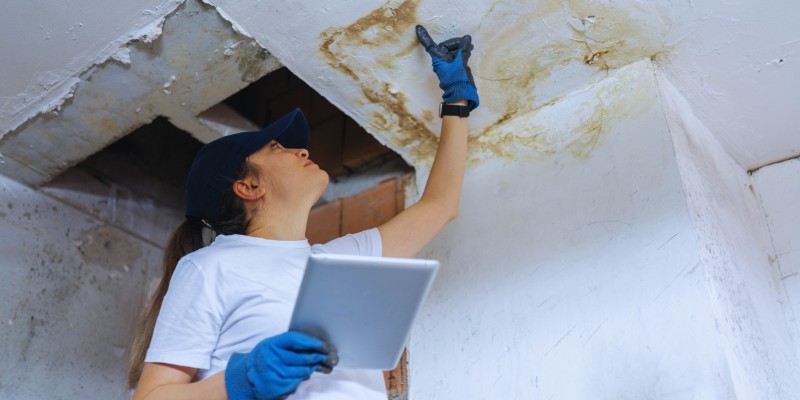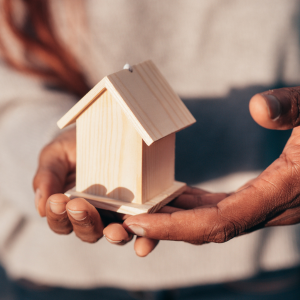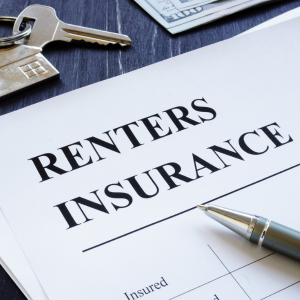
Understanding and Managing Tenant Property Damage in Chino Rentals
When you’re in charge of Chino rental homes, you need to know exactly what kind of damage is considered tenant damage. It is not just a matter of detail to know the difference between normal wear and tear and damage caused by tenants; it has a direct effect on choices about security deposits and repair budgets.
You’ll typically see tenant-related damage in the form of broken windows, holes in walls, stained carpets, or damaged appliances due to improper use. To stay ahead of these issues, landlords should make it a habit to conduct routine inspections at both move-in and move-out.
This creates a written record of when the property was in bad shape, which can be very important if there is a disagreement. Also, it’s helpful to know about California’s landlord-tenant rules, especially what kinds of damage are allowed and what kinds are not.
Having a solid lease agreement in place offers crucial protection for landlords. When tenant responsibilities especially around maintenance and reporting are clearly spelled out, there’s less room for confusion or neglect. By thoroughly screening tenants and keeping communication open, you can lower the risk of serious damage and foster a more respectful rental experience. Take note that Blue Wave Investments buys houses, and we’re here to help if managing rental issues becomes too overwhelming.
Affordable Housing Solutions

When working with affordable housing in Chino, it’s especially important to know how to handle damage to property by tenants. Damage that might not be a big deal in higher-end renters can quickly become a big problem in these places because the profit margins aren’t as big.
Landlords have to strike a balance between keeping properties livable and keeping costs reasonable. Regular inspections go a long way in catching issues early before they become expensive repairs.
Clear expectations set upfront help prevent misunderstandings about tenant responsibilities. In affordable housing, where every dollar matters, building a cooperative relationship with tenants makes a real difference.
Using durable finishes, cost-effective repair strategies, and preventative maintenance not only helps with costs but also protects the long-term condition of the property.
Urban Renewal and Revitalization
Urban renewal projects in Chino bring both excitement and challenges. As older buildings are updated and neighborhoods evolve, landlords face more pressure to maintain their properties while also protecting them from tenant damage.
When property values go up and renters move out, turnover rates can go up. That means more damage and wear. It’s easier to avoid problems if you know the rules in your area, especially those that deal with repairs and tenants’ rights.
Tenant screening, regular property checks, and leases that make it clear who is responsible for what can help you keep your property in good shape. Chino’s growth brings chances, but it also means owners need to be on the ball.
Understanding how revitalization efforts change the landscape helps property owners make smart, forward-looking decisions about their rental strategy.
Financial Support for Homebuyers
Dealing with tenant damage can be financially draining, but landlords in Chino do have options. There are grants, loans, and even home improvement programs designed to assist with repair costs.
Programs that help with unexpected costs, like repairs that need to be done because a renter didn’t take care of their property, can help property owners keep it in good shape without having to pay for everything themselves. Loans backed by the government or financial rewards may be available at the local and state levels.
Having the right rental property insurance is also essential. It can provide a safety net when a tenant causes damage beyond their security deposit.
Knowing what assistance is out there can make a real difference. Landlords who dig into available financial aid can keep their rentals in shape, meet all compliance requirements, and protect their budgets—and if circumstances change, remember that we buy houses in Chino for a fast, hassle‑free sale.
Green Building Practices and Benefits
In Chino, landlords are learning that green upgrades do more than just help the environment; they also keep buildings safe from damage. Using eco-friendly paint, recycled flooring that lasts longer, or energy-efficient tools can lower your maintenance costs over time.
These improvements also appeal to renters who care about the environment, which can help you find renters who will take better care of the space.
On top of that, landlords may qualify for rebates or tax incentives by incorporating green features. That can offset the upfront costs of making improvements.
By investing in resilient, low-maintenance materials, property owners in Chino can future-proof their rentals while also appealing to today’s environmentally conscious renters.
Strategies for Public Health Improvement
In Chino, rental homes that are well taken care of directly improve the health of the neighborhood. When landlords take damage to their tenants’ property seriously, they help protect public health by lowering risks like mold, pests, and building decay.
Routine inspections are key. Catching things like leaks or poor ventilation early can prevent health problems down the line. These issues may seem small, but they can spiral if left unaddressed.
Teaching tenants what they can do to keep the home healthy is also helpful. By telling them to report problems right away, you can keep small damage from getting worse.
When landlords stay up to date with local health codes and guidelines, they’re doing more than just protecting their properties they’re investing in the well-being of their tenants and the wider Chino community.
Tenant Rights and Responsibilities in Rental Agreements

Clarity is everything when it comes to tenant responsibilities in Chino. Every lease should spell out what tenants are expected to do to help maintain the property and what landlords will take care of.
Tenants are responsible for reporting maintenance issues quickly and not causing avoidable damage. That includes everyday actions, like preventing water damage from overflowing tubs or taking care of pet-related messes.
The landlords must then make sure the flat can still be lived in. That means taking care of repair requests quickly and making sure that important systems like the plumbing and power keep working right.
When both parties understand their responsibilities and maintain open communication, it’s much easier to avoid disputes, minimize property damage, and ensure everything runs smoothly. If you’re dealing with tenant-related issues and need to move on quickly, you can sell your house fast in Pomona and avoid further complications.
Innovative Community Engagement Strategies
More people are working together to rent homes in Chino. When landlords get involved with their tenants and the neighborhoods around their properties, it’s easier to keep their properties from getting damaged and keep tenants coming back.
Having casual get-togethers or talking to each other through digital tools can help build trust. People who rent are more likely to report problems quickly and take good care of the property if they feel like they are being heard.
Some neighborhoods have even embraced simple programs like neighborhood watch groups or property care workshops, which reinforce a shared sense of responsibility.
These community-focused efforts aren’t just feel-good ideas. They’re practical strategies for improving how rental properties are maintained and how tenants view their role in that process
Policies for Reducing Homelessness
Getting rid of homelessness in Chino has a direct effect on managing properties. Tenants who can use housing stability programs are less likely to get into situations that force them to leave their homes or cause a lot of damage from being ignored.
Landlords can help by partnering with local services offering rental assistance, credit counseling, or tenancy support. These collaborations not only help individuals stay housed but also protect property condition and reduce vacancy-related damage.
When policies are clear and tenants stay for a long time, they are more likely to take care of and value the places they live in. And for landlords, this means fewer repairs, more stability, and relationships that are better because both parties respect each other.
Renewable Energy Adoption in Residential Areas
As more properties in Chino adopt solar panels and other renewable systems, landlords are finding new things to consider when it comes to tenant property damage. These technologies can benefit the property long-term, but they also require careful planning to avoid issues.
For example, improper use or accidental tampering with solar equipment or inverters could result in costly damage. Landlords should make sure tenants understand how to use or avoid certain features tied to the energy systems.
Lease agreements should outline any special maintenance protocols or restrictions related to renewable installations. Regular inspections can also help identify potential problems before they escalate.
By educating tenants and staying proactive, landlords can enjoy the benefits of energy efficiency without increasing the risk of avoidable damage.
Disaster Preparedness and Emergency Response Planning
Chino’s location means landlords should be thinking ahead when it comes to disasters whether it’s earthquakes, flooding, or wildfires. Damage to rental units during emergencies can be minimized with proper preparation.
It starts with having a plan. Tenants should know evacuation routes, who to contact during emergencies, and what to do if something happens while the landlord is unavailable.
Landlords also need the right insurance coverage not just for the structure, but for specific hazards common in the area. Regular maintenance of smoke alarms, drainage systems, and structural components helps reduce the risk of emergency-related damage.
Being prepared protects not just the property, but also the tenant-landlord relationship, especially when stress levels run high.
What Damages Are Tenants Responsible for in California?
In California, tenants are responsible for damages that go beyond normal wear and tear. For landlords in Chino, it’s important to know exactly what falls under that category so they can document and address it correctly.
Typical tenant-caused damages include things like large holes in walls, broken appliances due to misuse, and stains or burns that can’t be cleaned or repaired through standard turnover procedures. Damage caused by pets, like scratched floors or chewed wood, may also fall under tenant liability.
To protect yourself, conduct a thorough move-in inspection with photos and written documentation. This baseline helps distinguish damage that occurred during the tenancy versus what was already there.
Making sure tenants understand what they’re financially responsible for and having it clearly stated in the lease helps avoid disputes when it’s time to return the security deposit.
Is a Landlord Responsible for Damage to Tenant Property?

In most cases, landlords in Chino are not responsible for damage to a tenant’s personal belongings unless that damage results from the landlord’s negligence. For example, if a leaky roof goes unrepaired and ruins a tenant’s furniture, the landlord could be held liable.
This is why regular maintenance is so important. Fixing problems promptly not only keeps the property in good shape but also limits potential liability.
Landlords should also recommend or require that tenants carry renters insurance, which covers the tenant’s personal items in cases of theft, fire, or other covered events. This adds a layer of protection for both parties.
Clear lease terms, routine inspections, and open communication all help reduce confusion about who’s responsible when things go wrong.
Can You Evict a Tenant in California for Damaging Property?
Yes, but it has to be handled the right way. In California, a landlord can start the eviction process if a tenant causes substantial property damage, but it must be backed by documentation and follow legal procedure.
The first step is providing the tenant with written notice typically a “Cure or Quit” notice which gives them a chance to repair the damage or pay for the cost of repairs. If the tenant doesn’t respond or refuses to comply, the landlord can file an unlawful detainer lawsuit.
In Chino, as in the rest of the state, it’s essential to keep detailed records of all communications, repair costs, photos of damage, and inspection reports. Without this, eviction can become much harder to justify in court.
It’s always smart to consult a housing attorney or legal aid group before proceeding, to make sure everything is done by the book.
What Is the Tenant Law for Repairs in California?
California law requires landlords to keep rental units in habitable condition. That means all plumbing, heating, electrical systems, and structural components must be working and safe. If a tenant reports a problem, landlords are obligated to fix it within a reasonable timeframe typically 30 days, but sooner if it’s an urgent issue.
If a landlord fails to act, California’s “repair and deduct” rule allows tenants to handle the repair themselves and deduct the cost from rent. However, there are limits: the deduction can’t exceed one month’s rent, and the tenant can’t use this right more than twice in 12 months.
To avoid confusion and disputes, landlords in Chino should respond to repair requests promptly and document everything. Keep copies of all tenant communications and invoices for completed work.
Staying compliant with California’s repair laws doesn’t just help you avoid legal issues—it also builds tenant trust and keeps your property well-maintained. We buy houses in any condition, so if managing repairs has become overwhelming, contact us today to explore a hassle-free way to sell.
Helpful Chino Blog Articles
- Do You Need A Lawyer To Sell Your House In Chino, CA
- Protecting Your Home From Medical Debt In Chino, CA
- Sell Your Parents’ House In Chino, CA
- Selling Jointly Owned Homes In Chino, CA
- Contingencies When Selling Your Home In Chino, CA
- Can My Ex-Partner Sell Our Chino, CA, Home Without My Consent After Divorce?
- Understanding Vacant Home Regulations In Chino, California
- Minimize Closing Costs When Selling Your Home In Chino, CA
- Understanding Tenant Property Damage In Chino, CA
- Understanding Taxes On Home Sales In Chino, CA
- How To Sell A Fixer-upper In Chino, CA
- The Sale Of A Reverse Mortgage Home In Chino, CA


